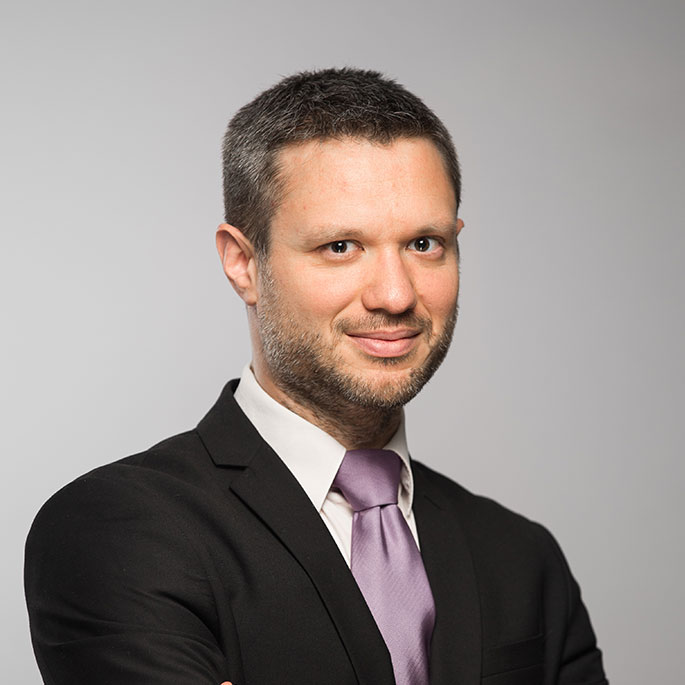
Good news? The French IP Office can now declare an invalidity or revocation of registered trademarks
The reform of trademark law is now producing one of its most visible effects in France — and calling this a revolution is no exaggeration.
As of April 1, 2020, direct actions for declaration of invalidity and revocation of French trademarks must be brought before the French IP Office and no longer before the courts. National practice has thus come into line with that of the EU trademark system.
So ends the relative “sanctuary” given to registered trademarks, which until now could only be cancelled by a court of law after lengthy proceedings requiring representation by an attorney-at-law, which was costly and often thus prohibitive. This reform will radically change the approach to many cases — both with regard to defending a trademark and with regard to attacking that of a third party.
1/ Before the French IP Office, the following are all the grounds which it is possible to assert to obtain cancellation of a registered trademark:
- absolute grounds: lack of distinctive character, descriptive or deceptive character, a trademark that is misleading or contrary to public policy, etc., it being noted that “filing in bad faith” is also included in the list and will surely lead to interesting debates,
- relative grounds: where another earlier right exists (the list set out by the Law for this is substantially broadened with the reform made since the Order of November 13, 2019), with a few notable exceptions, in particular copyrights and design rights,
- revocation of trademark rights: through lack of genuine use, a trademark that has become generic or deceptive etc.
Such a new procedure, in our view, has several advantages over petitioning a court:
- on-line operation, with however the possibility of oral comments after the inter partes exchange of written submissions,
- it is limited to a short time limit (one month to summon the defendant as of filing notification on the National Register of Trademarks, then a maximum of 6 months as of filing for exchanges between the parties, then 3 months for the IP Office to hand down a decision, whereas stays in proceedings upon joint petition by the parties are possible but also subject to a restrictive framework),
- and potentially less costly (the official fee is €600 with €150 per additional right invoked as a ground for cancellation).
It should moreover be noted that proceedings can be brought before the French IP Office by “any private individual or company” whereas before the courts this was possible by “any interested party” — so that proceedings can for example be conducted by one’s representative to maintain a degree of confidentiality.
Lastly, since the applicant for cancellation will not have to show that it has standing to take action before the French IP Office, it will be “easy” to petition for cancellation of the entirety of the trademarks in question and no longer only for the goods/services for which the claimant was able to show standing – a condition required before a court.
2/ Even so, these new procedures will probably lead to a period of uncertainty and new difficulties.
For the holders of rights, the so-called « Pacte » law recently substantially amended trademark law and the multiplicity of prior rights which could be invoked against a posterior trademark — which now goes beyond just the list of the goods and services covered by a trademark filed at a determined date — will complicate procedures.
The parties will also have to pay attention to questions of use of their rights, in particular on account of the new “dual use” rule, which now requires evidence of use not only at the time of instituting legal proceedings but also at the time of filing of the trademark attacked. Evidence of use thereby becomes doubly crucial, with increased focus on the nature, quality, constitution and preservation of such evidence.
These issues also constitute a challenge for the French IP Office, which will have to handle new questions and hitherto unfamiliar proceedings, in a short procedural time-frame. Even if the Office had the time to prepare and train its staff to handle such matters, it would seem inevitable that a certain number of proceedings initiated before the French IP Office will, at least at first, end up being resolved only before the Court of Appeal.
3/ Despite such uncertainty, these new procedures constitute a powerful incentive for those wishing to clear the terrain surrounding their trademark, or even to have a more convenient lever at their disposal during negotiations, the cost and length of the proceedings no longer (in principle) being dissuasive. Actions will thus certainly become more frequent.
For trademark holders, policies for managing their rights will also be greatly impacted, since it will in particular be necessary to develop new strategies when conducting searches for prior rights (as the neutralization of the third party rights is in principle technically facilitated, it will be easier to envision offensive actions), to file their signs in such a way as to match still better the exact form and scope of their planned use.
We have not yet reached the stage of having to prove genuine use by affidavits, in the manner of some countries, to maintain the validity of our rights, but this necessary development clearly shows the intention of the legislator to de-clutter registers of excess trademarks and to give the trademark back its proper function: for use in trade and to constitute an indication of origin.
Furthermore, it will be necessary to record assignments and changes of address still more rapidly so that notifications of actions can reach the holder of the trademark attacked (some holders until now having been tempted to postpone this type of operation, in particular for changes of address, until the time of renewals).
These new administrative procedures considerably change the overall approach to trademark matters and more than ever require a specific, rigorous and essentially pragmatic legal approach, which is at the heart of our professional practice. We are more than ever open to your needs and available to guide you in this new change to French law, our long international experience already enabling us to have a better approach to what is taking place in France. In the meantime, stay home and stay safe!
 Fabrice Pigeaux has been an Intellectual property attorney for more than 10 years and joined Santarelli 2016. He assists a very diverse clientele, both in France and abroad, primarily handling trademark and domain name matters.
Fabrice Pigeaux has been an Intellectual property attorney for more than 10 years and joined Santarelli 2016. He assists a very diverse clientele, both in France and abroad, primarily handling trademark and domain name matters.
